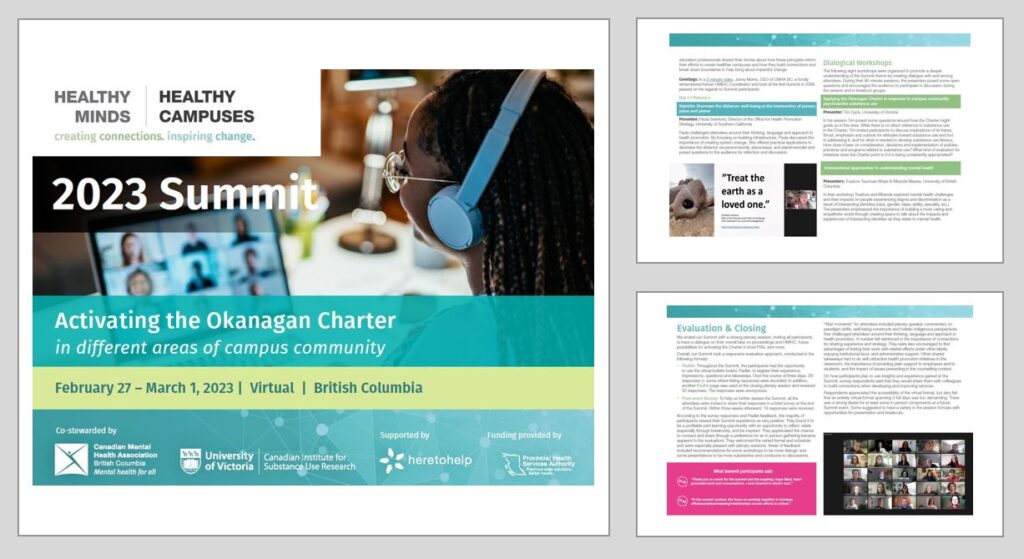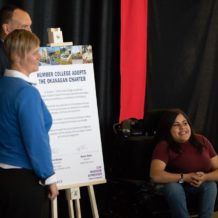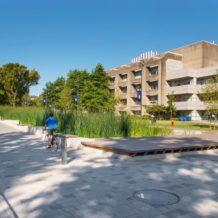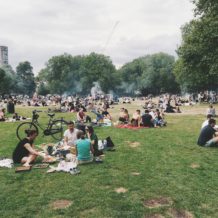Program
Summit Keynotes and Plenary Contributors
Matt Dolf

Matt is the Director for the Office of Wellbeing Strategy at the University of British Columbia, providing strategic direction and capacity-building support for UBC Wellbeing – a collaborative effort to become a health-promoting campus where all people, places, and communities can flourish. He was an active contributor to the development of the Okanagan Charter and currently co-chairs both the Canadian & International Health Promoting Campus Networks. Matt’s diverse career has focused on the nexus of science and community-based work, including overseeing tennis development across British Columbia for Tennis BC; managing the International Academy of Sports Science and Technology at the Swiss Federal Institute of Technology (EPFL); and working with the Vancouver 2010 Olympic & Paralympic Winter Games and the IOC to pioneer sustainability guidance for sports events. Matt holds a Doctorate in sport and sustainability from UBC. He has researched and published in health promotion, environmental impact assessment, sustainability, and sport management. He lives in Vancouver, enjoying time outdoors with his wife and daughter on the traditional, ancestral and unceded territory of the xʷməθkʷəy̓əm (Musqueam), Sḵwx̱wú7mesh (Squamish), and Sel̓íl̓witulh (Tsleil-Waututh) peoples.
Paula Swinford
Paula Swinford is the Director, Office for Health Promotion Strategy, University of Southern California. She is also a Clinical Instructor of Family Medicine in the Keck School of Medicine at USC. Paula is a member of Steering Groups for both the United States Health Promoting Campuses network and the International Health Promoting Colleges & Universities network.
Felicity Blaiklock
Felicity Blaiklock has been an educator for over 30 years starting as a classroom teacher (high school and college level) before transitioning into Student Affairs. Most recently, Felicity was Director, Student Affairs at North Island College where she led the development of the CARE 2 Strategic Plan: Student Mental Health and Well-Being at NIC, advocated for the (successful) adoption of the Okanagan Charter and joined the Healthy Minds | Healthy Campus Leadership Committee. The well-being of our post-secondary communities is at the forefront of Felicity’s interest and commitment; this has been manifested in many initiatives designed to create connection between individuals, institutions and communities. Last year, Felicity retired from full-time work, but she continues to follow her passion and is currently involved in several projects at NIC supporting the overall health of the campus communities.
Patty Hambler

A visitor and resident on the unceded Coast Salish territories, Patty Hambler is a Nehiyaw (Cree) woman and Urban Indigenous Canadian. Patty provides leadership within the postsecondary education sector as a student affairs professional. For over twenty years, Patty has contributed to systemic change that supports and enhances student health and wellbeing. She completed her BA and PDP (teacher education program) at Simon Fraser University and her Masters of Education at the University of British Columbia. An active member of CACUSS (Canadian Association of College and University Student Affairs), Patty was part of the team that led the development of the Canadian Student Affairs and Services Competency Model and is the current President for the organization. Patty is the Director, Student Affairs and Services, at Douglas College.
Summit Sessions at a glance
Plenary Sessions:
Plenary sessions were planned to kick off each day of the Summit. These sessions featured keynote addresses and other contributions supporting our theme, including a conversation circle. Components in the morning plenaries (which provided opportunity for response) included:
- Seeing the whole picture: the connection between mental health promotion and fostering well-being at a post-secondary college (Felicity Blaiklock)
- Towards regenerative campuses: implementing the Okanagan Charter to promote human and ecological wellbeing (Matt Dolf)
- Building connections: applying the 4 Rs to creating healthier campus communities (Patty Hambler, with Jennifer Anaquod & Jessica La Rochelle)
- Decrease the distance: person, place, and planet (Paula Swinford)
Concurrent Dialogical Workshops
There were 8 dialogical workshops in 4 different pairs of concurrent sessions, each 90 minutes, related to the Summit theme. Workshops were intended to create dialogue with and among attendees. The open questions included in each session invited attendees to participate in discussion at opportune junctures during the session and in breakout groups. People joined in engaging activities and dialogic conversations about activating the Okanagan Charter in different areas of campus community.
Concurrent Presentations
There were 18 short presentations provided within 3 different pairs of concurrent 90 minute sessions, each session containing 3 presentations. Presentations were for 20 minutes, relevant to enhancing campus members’ individual and shared well-being. The 90 minute sessions all included a 30-minute response time for Q&A at the end of the set of 3 presentations.
















